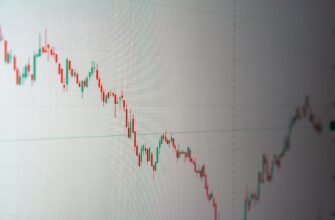Introduction: Navigating DeFi Taxes in France
Decentralized Finance (DeFi) has revolutionized how investors earn yield through crypto lending, staking, and liquidity pools. But in France, these profits aren’t tax-free. The French tax authority (Direction Générale des Finances Publiques) treats DeFi earnings as taxable income, with complex rules varying by activity type. Failure to comply risks penalties up to 80% of owed taxes. This guide breaks down how to legally pay taxes on DeFi yield in France, covering reporting methods, rates, and compliance tips.
How DeFi Yield is Taxed in France
France taxes DeFi yields under two frameworks:
- Income Tax + Social Contributions: Most DeFi earnings fall under Bénéfices Non Commerciaux (BNC) as miscellaneous income. You’ll pay progressive income tax (up to 45%) plus 17.2% social contributions.
- Flat Tax (PFU): For occasional traders, the 30% Prélèvement Forfaitaire Unique (12.8% income tax + 17.2% social charges) may apply. However, frequent yield farming often disqualifies you from PFU.
Tax triggers upon yield receipt or crypto-to-fiat conversion, using EUR values at transaction time. Unlike capital gains, losses can’t offset DeFi income taxes.
Types of DeFi Yields and Their Tax Treatment
Not all DeFi income is taxed equally:
- Staking Rewards: Taxed as BNC income at fair market value when received. Example: Earning 0.1 ETH via staking when ETH = €2,000 adds €200 to taxable income.
- Liquidity Mining/Yield Farming: Rewards are taxable upon claim. Frequent activity may classify you as a professional trader, subject to higher rates.
- Lending Interest: Treated like traditional interest income under BNC, taxed at progressive rates.
- Airdrops & Forks: Taxable as miscellaneous income at receipt value.
How to Report DeFi Income on Your French Tax Return
Follow these steps:
- Calculate Earnings in EUR: Convert all yields to euros using exchange rates at receipt date (use platforms like CoinTracking or Koinly).
- Choose the Correct Form: Report under “Revenus des créances, dépôts et cautionnements” on Form 2042-C for BNC income. For PFU, use Line 2DH.
- Declare Annually: Include all earnings in your yearly income tax declaration (deadline: May-June).
- Foreign Platform Reporting: Even if using non-French DeFi apps (e.g., Uniswap), you must declare income to French authorities.
Record Keeping and Compliance Tips
Maintain detailed records to avoid audits:
- Track all transactions: Dates, amounts, wallet addresses, and EUR values.
- Use crypto tax software (e.g., Accointing) for automated calculations.
- Retain proof for 6 years post-declaration.
- Declare even small yields – no minimum threshold exists.
Potential Penalties for Non-Compliance
Ignoring DeFi taxes invites severe consequences:
- 10% minimum penalty for late/missing declarations.
- 40% penalty for unreported income discovered in audits.
- 80% penalty for deliberate tax evasion.
- Interest accrual at 0.2% monthly on unpaid taxes.
FAQ: Pay Taxes on DeFi Yield in France
Q1: Is DeFi yield always taxable in France?
A1: Yes. All DeFi earnings (staking, farming, lending) are taxable upon receipt or conversion to fiat.
Q2: Can I use the 30% flat tax for DeFi income?
A2: Only for occasional activities. Regular yield farming typically falls under progressive BNC rates.
Q3: How do I value yields received in crypto?
A3: Convert to EUR using exchange rates at the exact time of receipt. Historical data from CoinGecko is acceptable.
Q4: Are losses from DeFi deductible?
A4: No. Unlike capital gains, DeFi yield losses can’t offset income taxes. However, capital losses from token sales might apply separately.
Q5: What if I use a decentralized wallet?
A5: You’re still liable. French tax law focuses on residency, not platform location. Track all wallet activity.








